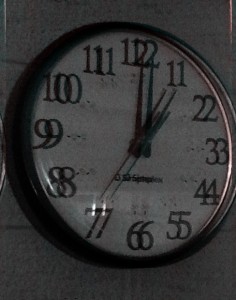Why We Do Daylight Savings
Ben Pryor ‘16
Staff Writer
Daylight savings time was first introduced by Benjamin Franklin in 1784 in Paris France, but the idea behind daylight savings was not taken seriously until 1907 by London resident William Willet. Willet prompted the people of London to advance their clocks 20 minutes on each Sunday of the month of April, and then turning them back on each Sunday of September. While riding down the streets of London he noticed that many of the blinds were closed on houses during the morning and an hour of daylight was being wasted each day. The main purpose of daylight savings time is to make better use of the daylight as William Willet suggested in his pamphlet titled “Waste of Daylight”. We change our clocks during the spring months to ensure that we have enough daylight to complete various tasks during the summer. Daylight savings time is not only for making better use of the daylight, but it also focuses on energy usage in all countries of the world. Daylight savings helps energy use and based on studies done by the U.S. Department of Transportation in 1975 it cuts the entire country’s electricity usage by a small but significant amount, a little more than one percent each day, using less electricity for lighting and appliances. Similarly, in New Zealand, power companies have found that power usage decreases 3.5 percent when daylight saving starts. In the first week, peak evening consumption commonly drops around five percent.Daylight savings time also plays a key role in public safety as it decreases traffic accidents. Several studies in the U.S. and Great Britain have found that the shift of daylight reduces the net traffic accidents and fatalities by close to one percent. An increase in accidents in the dark mornings is more than offset by the evening decrease in accidents. Lastly, daylight savings time is not commonly popular among those who are enrolled in school due to the fact that in the spring an hour is gained and although the alarm clock shows your usual time of waking up, but in fact it is one hour earlier than the clock reads.

